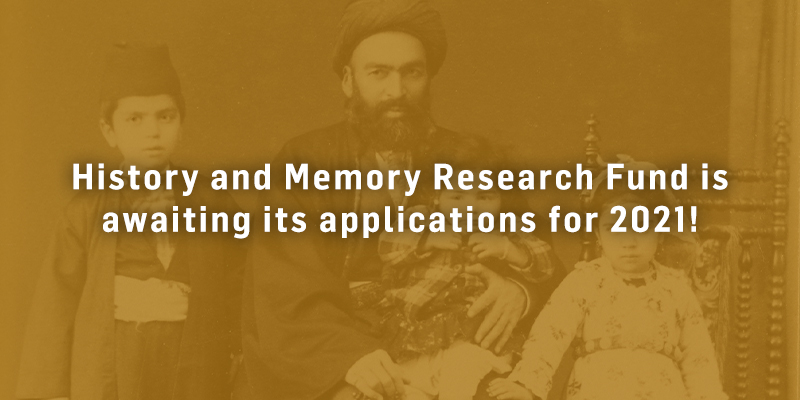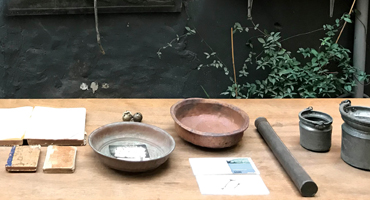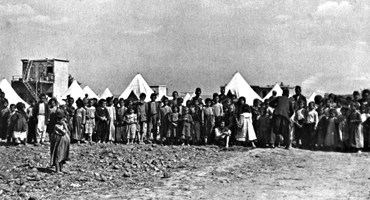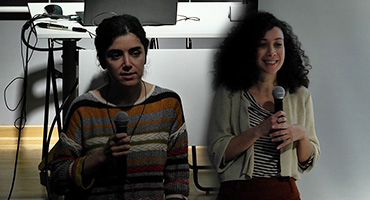The Fund for the Support of Historical Research, created with the kind assistance of Dr. Alper Öktem in 2010, aimed at promoting and supporting research on 1915, with a particular focus on scrupulous acts of conscience which would today be considered as human rights defense. In 2013, the scope of the fund, renamed as ‘History and Memory Research Fund,’ was enhanced to include research on memory and the relationship between memory and history. In addition to its initial scope, the History and Memory Research Fund the fund also supports research on the ongoing legacies of the human consequences of 1915, its trans-generational traces and the different modes of remembering.
In 2017, in addition to Alper Öktem’s core support, the Fund has also received additional support from Harry Parsekian.
Aim
The objective of the Fund is to reveal hidden acts of conscience and humanity in Turkey’s difficult past; to enable research on the trans-generational effects of 1915 (particularly with reference to notions such as responsibility, conscience and justice); to encourage researchers working on the history and memory of 1915, and to make the relevant research in this field accessible to the greater public.
Scope
- Including but not limited to the questions listed below, history and memory research on how different people and groups have responded to the events during the dark times in history in terms of responsibility, conscience and justice are eligible for the Fund.
- How did different people or groups respond to 1915 with reference to notions such as responsibility, conscience and justice?
- Who refused to participate in the orders and acts of violence, elimination and plunder aimed against Armenians and Armenian entities? What were/are the consequences of such refusal?
- How did the human, social, economic and political dimensions of 1915 affect subsequent generations? How do these transgenerational traces reverberate today?
- How does the current generation relate to the perpetrators, witnesses and dissidents of 1915?
- How have the spheres of class, geographical location, ethnic/religious/sectarian belonging and gender shaped the memory of 1915?
- How are the events of 1915 reflected in literature, visual arts, cinema and theatre? How do the representations of 1915 in literary, visual, cinema and theatre works converge with / divert from the dominant historiography and memory of 1915?
- How is the relationship between historical events and the contemporary world expressed in different localities?
- What kind of research has already been conducted on responsibility, conscience and justice in relation to the eradication of Armenians in Anatolia and to the events of 1915? What is the impact of such research on a macro/micro scale?
The Jury selected by the Hrant Dink Foundation works in line with the above stated aims and scope, also contributing to cooperation between the Foundation and universities and research centres in Turkey and internationally.
Contact
Hrant Dink Foundation
Adress: Anarad Hığutyun Binası
Papa Roncalli Sk. No: 128 Harbiye
34373 Şişli İstanbul
Phone: +90 212 240 3361
E-mail: This email address is being protected from spambots. You need JavaScript enabled to view it.
For further information and questions about the fund, please contact us at the above address and phone numbers.
Application Terms
- All researchers (whether affiliated with a University or not) are eligible for the Fund.
- Applicants can apply with a single project. In cases of co-edited projects, more than one applicant may apply.
- Application languages are limited to English and Turkish.
- Only new or ongoing research projects are eligible. Projects that have already been completed and published will not be funded.
- The application should be no less than 7 pages.
- The deadline for submission is 22 October 2021.
- The results will be announced on 10 December 2021.
- Those who applied for the former grant may re-apply.
Phases and the Required Documents for Application
If any of the below listed documents is missing in the application and/or the information provided therein is incorrect, the application will be rejected.
The application should provide the following documents:
Detailed Curriculum Vitae: Should list continuing and/or completed education, work experience; and published works, if applicable. In case of co-edited projects, all applicants should provide a separate CV. Three references from people working on the related field should be provided. Names and contact information of the referees will suffice at this stage.
Ethical declaration: A signed document declaring that the research process and its end products will be in line with the ethical principles of academic writing and production (protection of the participants, originality of the research, and so on)
Academic References: Two academic referees who are familiar with the researcher’s proposed or other work
Synopsis of the Research Project: Should provide information on the topic and methodology of the research as well as its contribution to the existing literature.
- Standard A4 page must be used, with a 3 cm margin at the top and left of the page, and a 2 cm margin below and on the right of the page respectively.
- Name and surname have to be written on every page; each page has to be numbered.
- Applications have to be prepared in .pdf or .doc formats to be sent as an e-mail message; if applicable, copies of the visual/audio material and documents are to be included in the e-mail. In addition, a copy of the Synopsis should be sent to the postal address above.
Please note again that the research abstracts must be submitted until the 22 October 2021 here.
Evaluation Criteria
Each year in May, the Board Members of the Foundation form the jury. One person is appointed for coordination. The Jury evaluates the applications according to the following criteria:
- The work should adhere to the accepted norms of the scientific community; concerning research methods, presentation and references.
- The work should be original and related to the proposed themes of the fund.
- The work should not only repeat known facts nor be a collected work of previously published work.
- The work should be the product of new and labour-intensive research.
- The work should display strength of observation, depth of research and quality of interpretation.
Support Fund
Project coordinators of the support fund will share the annual additional fund amount with the jury. Whether there will be support for any of the submitted works in a given year depends completely on the evaluation of the jury. Even if the jury decides not to support any work in a given year, Dr. Alper Öktem will still donate the foreseen amount and it will be kept by the Foundation for later use in the Fund.
If the evaluation in a given category shows more than one work as being worthy of support by the Fund, the Fund will be distributed evenly among these works. The coordinator presents the outcome of the Jury’s evaluation to the Board of the Foundation in November. The final decision will be made by the Board of the Foundation in view of the jury evaluation.
Rights and Obligations
- All responsibilities and copyrights pertaining to the research and its consequences belong to the researcher.
- The researcher is responsible for providing a detailed report on the research at the end of the research period. Hrant Dink Foundation retains the right to publish this report or an abstract thereof on its website.
- Hrant Dink Foundation may ask for an academic article from the researchers who have been qualified for funding, if their research is decided to be compiled and published the by the Foundation. The researcher is responsible for informing the Hrant Dink Foundation if the article has been published before or has copyright issues.
- The researcher is responsible for clearly stating that the Project has been supported by the Hrant Dink Foundation History and Memory Research Fund in all of the published material springing from the supported research.
Declaration of the Results
The supported projects of 2021 will be announced on the Hrant Dink Foundation website on 10 December 2021.
Hrant Dink Foundation History and Memory Research Fund 2021 Jury
Hülya Adak (Sabancı University)
Ayşe Gül Altınay (Sabancı University)
Ayfer Bartu Candan (Boğaziçi University)
Valentina Calzolari (Université de Genève)
Deniz Kandiyoti (University of London)
Raymond Kévorkian (Université Paris-VIII)
Kerem Öktem (University of Graz)
Arus Yumul (İstanbul Bilgi University)
The supporters of the History and Memory Research Fund
Dr. Alper Öktem
Born on 11 March 1954 in the Turkish town of Dikili, he finished his primary education in Burdur. He started to pursue his secondary education at the Maarif Koleji in Eskişehir, continued in Konya and finished it in Istanbul at the Kadıköy Maarif Koleji. In 1978, he graduated from Faculty of Medicine at Hacettepe University in Ankara. He went to Germany for specialization in radiology. In the 1980s he helped Turkish refugees who underwent torture. He has been supporting the Human Rights Foundation of Turkey for more than twenty years. Moreover, he is a board member of the Democratic Turkey Forum in Germany. Dr. Öktem has been assisting Cem Özdemir, Co-Chairman of the Unity 90/Green Party, especially on the topics of human rights, peace and democracy in Turkey, ever since Özdemir was first voted into parliament in 1993. In 2000-2001 he published the weekly supplement Perşembe for the German daily newspaper “Die Tageszeitung.” Perşembe aimed at bringing together German society and migrants on equal ground in the same media platform, making migrants equal members of society, especially through deepening the dialogue in the media, and reporting human rights violations in Turkey. Dr. Alper Öktem is married, has two children and lives in Bielefeld, Germany, where he works as a radiologist.
Harry Parsekian
Harry Parsekian was born in 1935 and has been a lifelong resident of Watertown, Massachusetts. He circumvented the world in 1984 and within years he traveled through lots of countries. In 1986 he climbed to the summit Mt. Ararat. In 1991 He volunteered for humanitarian aid flights to blockaded Armenia and in 2006 he bicycled from Armenia to Artshakh (Karabakh). He traveled troughout Armenia and Turkey and for the last few years has been involved in Turkish Armenian relations. He is a retired buisnessman and the president of Friends of Hrant Dink, Boston, MA.




